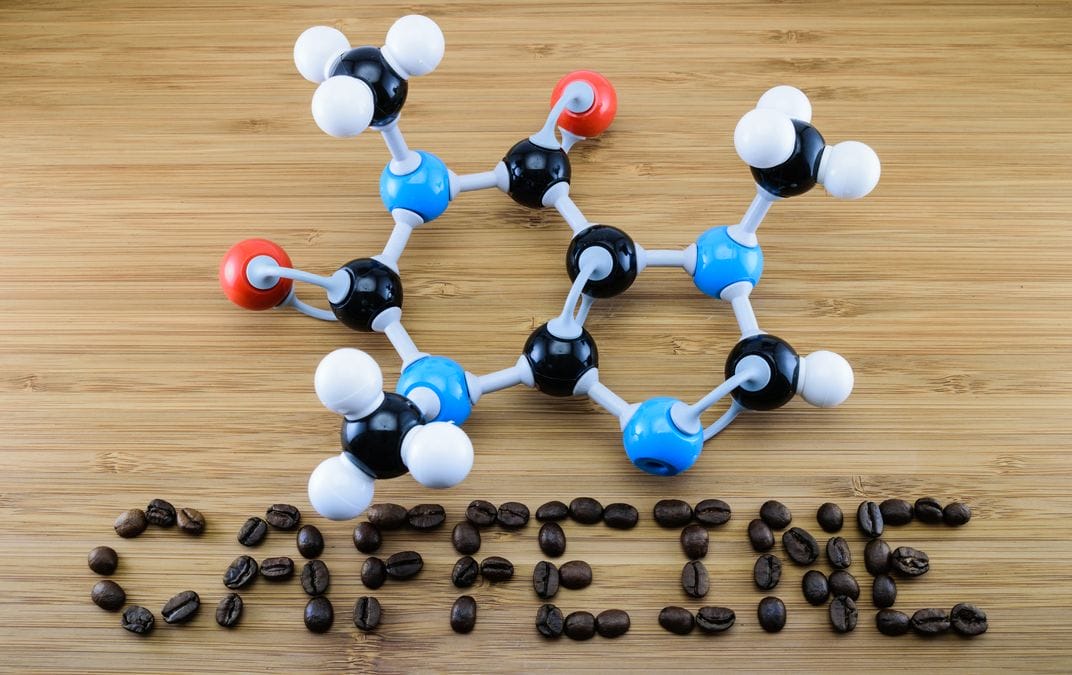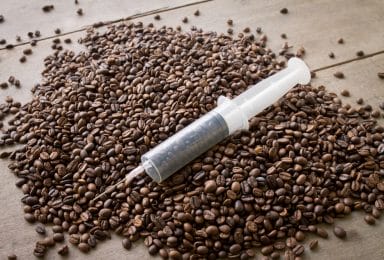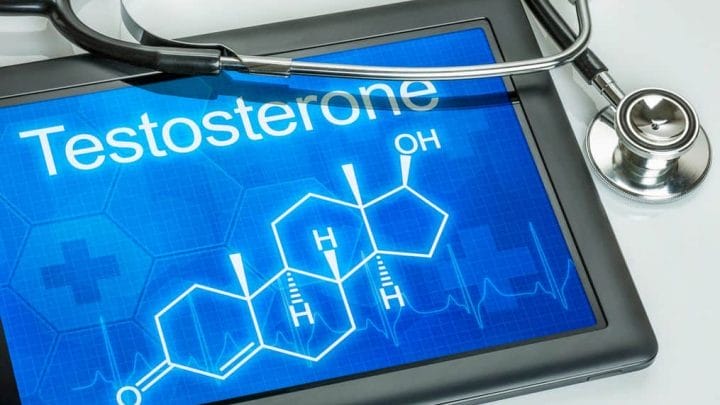
Caffeine – medicinal properties and effects on our health
Coffee is one of the two most widely consum ed beverages in the world, and comes in many different varieties and preparations. It is safe to say that even the English, so far attached to their traditional afternoon tea, increasingly prefer to replace it with a cup of aromatic, strong coffee. Its main ingredient is caffeine, found not only in coffee, which has numerous healing properties and has a beneficial effect on health, of course when supplied in moderation, in recommended doses.
Contents
Caffeine – what it is and what are its sources

From a purely scientific point of view, caffeine is simply an organic chemical compound classified as a purine alkaloid. One of its characteristic features, distinguishing it from other compounds, is a unique, specific way of connecting carbon and nitrogen atoms in the molecule. It is a substance quite commonly found in nature, but it can also be obtained artificially, and the first synthesis of it was performed in 1819 by a German chemist Friedrich Runge.
Caffeine obtained in this way has the form of a white powder with a bitter taste, easily soluble in water. In nature caffeine can be found not only in coffee beans, but also in some species of tea, cocoa beans, guarana, or in increasingly popularYerba mate – drinking it regularly will help you stay healthy and slim yerba mate, extract from the Paraguayan holly plant. It is also used as an ingredient in dietary supplements designed to improve our health, mainly for weight loss and to help burn excess body fat or relieve symptoms of respiratory diseases, such as asthma. Caffeine – recommended safe dosage.
Caffeine – recommended safe dosage
If caffeine supply is to bring positive effects, one must always follow the recommendations of specialists, take only specific, safe doses of this substance without the risk of side effects. The safe dose of caffeine recommended by doctors is 300 mg per day, and we can start talking about an overdose if we consume more than 500 mg of caffeine at the same time.
The lethal dose of caffeine is 10g, but intoxication occurs as soon as we exceed 2000 mg of this alkaloid, and then we have to reckon with the occurrence of very unpleasant symptoms:
- very strong agitation;
- impaired concentration and difficulty in concentrating;
- nervousness;
- violent hot flashes;
- convulsions that are difficult to control;
- problems with falling asleep leading even to Insomnia – how to cope with it and finally get some sleep;
- dizziness;
- arrhythmias;
- increased frequency of urination, or diuresis.
Caffeine can also be addictive, because despite its numerous health-promoting properties, it is at the same time considered to be a psychoactive agent, addictive both physically and mentally. The symptoms of addiction are similar to those of coffee intoxication, so that it is sometimes difficult to recognise them correctly and connect them with supplying the body with too much caffeine.
Caffeine – effects on the body
Caffeine’s effects on humans are multifaceted, which simultaneously influences its numerous properties, and they can be divided depending on the part of the body it affects at a given moment:
Brain and nervous system
Providing caffeine stimulates our centrifugal nervous system, increases the secretion of neurotransmitters, serotonin, adrenaline, noradrenaline and dopamine. Better transmission of nerve impulses can be felt almost immediately after drinking e.g. a cup of coffee, because it has a positive effect on brain function, and in addition:
- improves memory and increases concentration;
- removes the feeling of fatigue and sleepiness;
- makes us reflexes better and reduces our reaction time;
- mitigates the negative effects of Stress – how it affects our body. How to cope with stress? stress, depression and other nervous tension;
- facilitates remembering and absorbing large amounts of new information;
- adds energy, providing it in large, but unfortunately short-acting doses;
- improves mental well-being, putting us, especially in the morning, in an excellent mood.
In order to intensify the effects, it’s worth to combine caffeine with simultaneous supplementation of other substances, in the same way increasing the efficiency of the brain and nervous system:
- Vitamin B – types, action and health properties B vitamins, of which the most important is vitamin B6 (pyridoxine) and Vitamin B12 – action, properties, role in the body. Symptoms of deficiency vitamin B12 (cobalamin);
- Amino acids, such as l-tyrosine and l-theanine;
- minerals, such as magnesium, which has an excellent effect on long-term and short-term memory and concentration, counteracts the effects of stress, and protects against mood deterioration.
A very good dietary supplement, thanks to which we’ll be able to cope with every mental effort, recommended also by specialists, is Brain Actives – a comprehensive support for the correct work of the Brain Actives brain, in which the action of caffeine is supported by other, natural active ingredients:
- TeaCrine®, a unique complex, which has just caffeine in its composition;
- Cognitive & Nootropic Complex, another patented ingredient consisting of ashwagandha plant extracts, Bacopa monnieri (brahmi), a herb beneficial for the entireThe whole body benefits from bacopa, Centella Asiatica and black pepper, which provides the valuable Piperine – black pepper not only for weight loss;
- Neuro Vita-Min Blend, a mix full of vitamins and magnesium.
Brain Actives – comprehensive support for proper brain function READ MORE ABOUT BRAIN ACTIVES
Heart and circulatory system
The positive effects of caffeine on the heart and circulatory system are also worth appreciating, but only if you strictly adhere to and never exceed its safe doses. Otherwise the effect may be the opposite, we will start to feel numerous ailments:
- a sudden increase in blood pressure, especially dangerous for those suffering from hypertension;
- a feeling of heart palpitations;
- heart rhythm disturbances, often requiring medical intervention.
However, these occur only if the recommended dose of 300 mg of caffeine per day is exceeded, and moderate coffee drinking, maximum 1 – 2 cups per day, will not cause any of the above risks. Antioxidants contained in it – an effective barrier against the attack of free radicals antioxidants remove free radicals, which are one of the causes of cardiovascular disease, also allowing blood pressure to be regulated to some extent.
At the same time, caffeine dilates blood vessels, improving blood flow and oxygenation of all internal organs, which is used, among other things, in the treatment of migraine headaches.
Respiratory system
Another in our body that will feel the positive effects of small doses of caffeine. Among other things, it facilitates breathing by dilating the bronchi, reduces the intensity and frequency of attacks of shortness of breath, relieves the most troublesome symptoms of asthma.
Skeletal and muscular system
In the case of the skeletal system, we can rather talk about the negative effects of caffeine on its condition, and its excess is one of the causes of osteoporosis. Drinking large amounts of coffee causes gradual leaching of calcium, one of the elements responsible for proper bone mineralisation and their resistance to mechanical damage, especially fractures.
If we don’t want to give up coffee, additional supplementation of this element will be necessary to supplement the resulting deficiencies. If one cup of coffee is not enough for us, drinking more we must remember that it causes increased urination, and with it we remove calcium, potassium and magnesium, which causes a significant loss of bone mass.
In the case of muscle tissue, caffeine can help with strength training, mainly due to better blood flow, which increases the oxygenation of theThe caffeine effect on muscle tissue can help strength training, mainly due to better blood flow, which increases oxygenation of the muscles and provides them with increased doses of essential nutrients, including calcium. In addition, caffeine:
- reduces muscle soreness;
- helps you concentrate better on your exercise;
- blocks neurotransmitters responsible for sending information to the brain about fatigue, but you shouldn’t overdo it, e.g. with the number of repetitions of a given exercise, risking serious injury in the process;
- provides energy for exercise, but remember that it is short-lived, which will need to be replenished quickly;
- accelerates rest and recovery after virtually any form of physical activity, while preventing one of the most unpleasant effects that occur after training. It stops the secretion of lactic acid and releases calcium in the muscles, counteracting the formation of painful soreness.
Digestive system, aid in weight loss
Caffeine is very often used in preparations intended to support weight loss treatment, which is helped by its effect on the digestive system. Of course, it is always the basis for rapid and sustained weight reduction, without the yo-yo effect – what is it? How to avoid it? How to lose weight without the yo-yo effect? The yo-yo effect remains a properly selected diet and a lot of physical activity – why is physical activity so important for our health, but caffeine supports the whole process, acting on several levels:
- How to reduce appetite – proven and effective methods suppress appetite, allowing you to largely control over snacking, constantly reaching for unhealthy, high-calorie and fatteningOverweight and obesity – differences, causes and diseases which cause overweight and obesity;
- intensifies the process of lipolysis, reduction of excess fatty tissue deposited in various parts of the body. This happens thanks to an increase in the level of adrenaline, with a simultaneous increase in the secretion of gastric acids, resulting in more efficient burning of fat cells;
- supports thermogenesis, safely raising body temperature to enable more efficient burning of all excess calories consumed during the day;
- increases physical fitness, improves condition, thus allowing you to complete your entire training plan;
- is a source of energy effectively mobilising to action, which is useful not only to persons exercising, making it easier for them to get rid of excess weight. It is also beneficial for professionally active people who are able to cope with all the duties imposed on them.
Caffeine – recommended supplements for slimming
We can count on such effects of caffeine if we support ourselves with properly selected dietary supplements, and professional nutritionists recommend:
Keto Actives
Ketogenic diet – can you lose weight on it? Keto Actives weight-loss tablets help your body to enter the state of ketosis, having in their composition not only anhydrous caffeine, but also other ingredients that allow you to quickly reduce body weight:
- ForsLean®, a formula full of Forskolin, or Indian nettle support for weight loss! Forskolin from Indian nettle;
- Clarinol®, linoleic acid (CLA) in an easily absorbed, compressed form;
- Synephrine – fat burning with bitter orange synephrine, derived from bitter orange fruit;
- Ashwagandha (Vitania sluggard) extract a natural way to relieve stress and other problems! ashwagandha;
- Capsaicin – health can have a pungent taste capsaicin obtained from the fruit of the annual pepper;
- piperine derived from black pepper;
- chromium.
Keto Actives – thanks to the phenomenon of ketosis you will lose all excess weight READ MORE ABOUT KETO ACTIVES
Fast Burn Extreme
One of the most effectivefat burning supplements, with a modern composition developed in the laboratories of the manufacturer, who decided to use the following substances in it:
- caffeine;
- bitter orange extract;
- Green tea leaf extract – from far Asia straight to our healthy diet of green tea;
- Annual capsicum extract
- Indian nettle extract;
- vitamin B6;
- chromium;
- Garcinia Cambogia fruit – a tropical fruit to help you lose weight garcinia cambogia.
Fast Burn Extreme – we check the effectiveness of this fat reducer! Is it worth buying? READ MORE ABOUT FAST BURN EXTREME
Caffeine – contraindications
Drinking coffee or using the above dietary supplements with caffeine can bring many health benefits, but not for everyone. This is because there are certain medical contraindications that prevent you from consuming even trace amounts of caffeine:
- hypertension;
- coronary heart disease;
- pregnancy;
- diabetes;
- gastric ulcers;
- pancreatic and duodenal diseases;
- gallstones;
- continence problems;
- Insomnia – causes, symptoms, effects and treatments insomnia and other sleep disorders;
- migraine headaches;
- use of certain medications that already have caffeine in them, as well as antidepressants, antibiotics, or muscle relaxants.
Limiting caffeine intake is also recommended for pregnant women, as it can cross the placenta causing a dangerous increase in blood pressure in the baby, slowing its growth and increasing the risk of miscarriage.
Sources:
- https://www.healthline.com/health/caffeine-effects-on-body
- https://www.healthline.com/nutrition/how-to-get-caffeine-out-of-your-system
- https://www.healthline.com/nutrition/caffeine-tolerance#tolerance
- https://www.healthline.com/nutrition/caffeine-side-effects#TOC_TITLE_HDR_9



